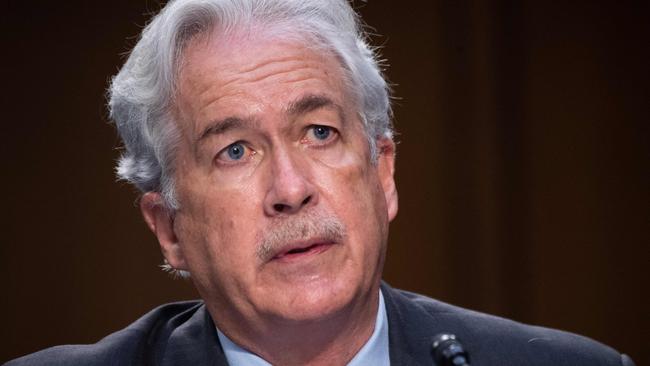CIA chief forms China-focused group in pivot toward Asian rival
The spy agency has struggled to recruit spies in China; Burns cites ‘increasingly adversarial Chinese government’.

CIA director William Burns is establishing a major organisation within the agency focused on China, expanding and co-ordinating intelligence gathering against what top US officials have described as a multipronged threat from Beijing.
The newly announced China Mission Centre, part of an agencywide pivot toward China, will bring together case officers who recruit spies, intelligence analysts, technology experts and other specialists in a single unit. The spy agency will also recruit and train more Mandarin speakers and deploy China specialists around the world, reflecting the global nature of US-China competition, a senior CIA official said.
The new centre “will further strengthen our collective work on the most important geopolitical threat we face in the 21st century, an increasingly adversarial Chinese government,” Mr Burns said in a statement.
The CIA chief also announced the founding of another new centre that will focus on emerging threats such as disruptive new technologies, climate change and global health that haven’t traditionally been a priority for US intelligence agencies.
The structural changes highlight how the CIA, whose No. 1 priority for the last 20 years was tracking terrorists and disrupting their plots, faces a changed global landscape. At the same time, terrorism remains a threat — many analysts fear a resurgence from Afghanistan following the collapse of the U.S.-backed government there — as do Iran, North Korea and Russia.
“We also face a challenging balancing act at CIA” between new and longstanding threats, the senior agency official said.
The two mission centres and other initiatives that Mr Burns announced Thursday were the first major changes he has made at the spy agency since taking office in March, and stem from reviews of CIA operations he launched this spring.
The agency has struggled in recent years to recruit and run agents inside China, according to former intelligence officials, even as the number of U.S. citizens arrested and convicted of spying for Beijing has grown.
On another critical topic, US spy agencies were unable to pinpoint whether the virus that causes Covid-19 first infected humans via transmission from an animal or a laboratory leak in Wuhan, China, where the disease first emerged. US legislators and members of the Biden administration have said that US intelligence agencies should make pandemics and global health, traditionally low-priority issues, a greater focus of their work.
CIA officials declined to say how many additional resources and personnel would be dedicated to gathering and analysing intelligence about China, its leaders and their intentions. In December, the Office of the Director of National Intelligence said US spy agencies had increased China-related spending by almost 20 per cent in the federal fiscal year that ended September 30, 2021.
Mr Burns and other top intelligence officials argue that China poses a unique challenge to the US given its economic might, in technology, trade, diplomacy, defence and other spheres.
The China Mission Centre is meant to signal “the singular priority” that China represents for personnel across the agency, the senior official said. As was done with counterterrorism in preceding years, Mr Burns will host a weekly meeting on China with the centre’s head and other top officials.
“The CIA must adapt to the policy priorities of each new administration as well as to the evolving global landscape of national security challenges and opportunities. If there is any country that deserves its own mission centre, it is China,” former CIA director John Brennan said.
Mr Brennan, who served under Barack Obama, instituted the mission-centre concept as part of a sweeping 2015 reorganisation of the CIA. The centres were intended to more tightly knit the separate disciplines of gathering intelligence and analysing it.
While saying that North Korea and Iran remain priorities, Mr Burns nonetheless intends to eliminate separate mission centres devoted to those nations and fold them back into regional units devoted to East Asia and the Near East, respectively, the senior official said.
Explaining the change, the official said that the challenge from both countries is best addressed in a regional context, where US co-operation with allies is key.
In another planned change, Mr Burns intends to dramatically accelerate the onboarding process for new CIA officers, which can take up to two years from a prospect’s initial interview to hiring, often because of lengthy security reviews. “Right now it’s way too long,” the official said. The goal will be to shorten the time to a median of six months without cutting corners on security.
The other new unit Mr Burns announced, the Transnational and Technology Mission Centre, will have a dual focus: gathering and analysing intelligence on border-crossing threats such as pandemics, and ensuring the CIA understands the impact of fast-paced technological innovation, including via outreach to the private sector.
The Wall Street Journal



To join the conversation, please log in. Don't have an account? Register
Join the conversation, you are commenting as Logout